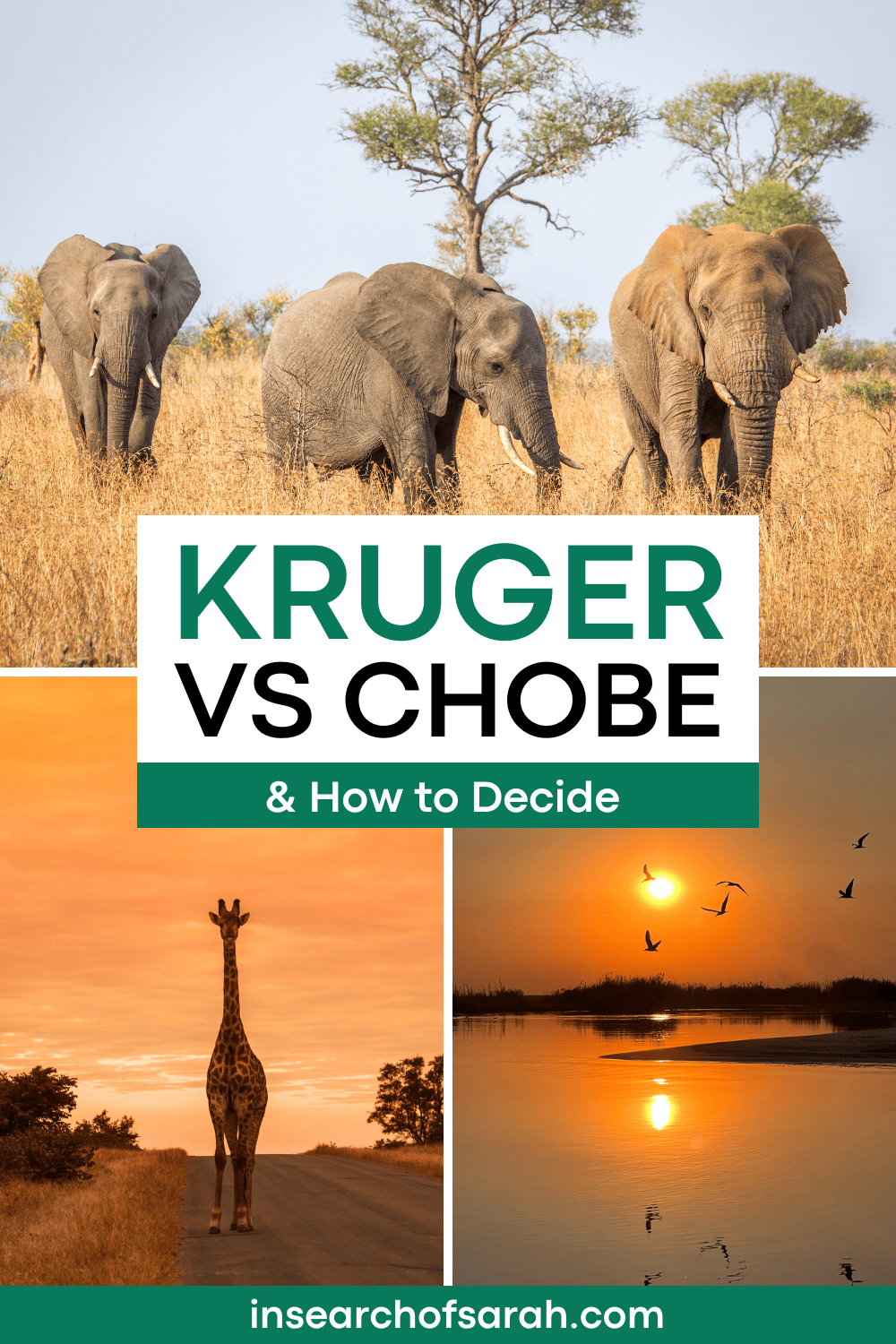Can’t decide between Kruger National Park vs Chobe National Park? Let’s break down the differences between them and how to pick one for your next African safari!
You’ve heard whispers of untamed landscapes where wildlife roams free, and now you’re ready to live that dream. African safaris offer just that, a window into the wild where you can witness nature’s drama unfold before your very eyes.
Imagine the thrill of encountering lions basking in the African sun, the grace of a herd of elephants moving across the savannah, and the precision of a cheetah in pursuit.
Kruger National Park in South Africa and Chobe National Park in Botswana stand out as two premier destinations for these experiences. Both parks promise unforgettable wildlife viewing along with the excitement and adventure that only an African safari can offer.

However, each park carries its unique allure and treasures, setting the stage for a comparative exploration of two diverse wildernesses.
After visiting Kruger National Park in 2019 with Mafigeni Safaris and Chobe National Park in 2023, I can tell you these both of these destinations are drastically different and equally captivating. If you’re stuck on choosing between Kruger Chobe and which African safari to go on, I hope these comparisons will help solidify a decision for you!
Plan your next vacation using these tools!
✈️ Book flights: Expedia & SkyScanner
🏨 Book hotels: Booking.com & Expedia
🚘Book car rentals: RentalCars.com
🎫Book tours: GetYourGuide & Viator
🩹 DIY Travel Medical Kit
💸 20 Cheap Travel Items Under $20
This post contains affiliate links which means I earn compensation when you click on the links at absolutely no extra cost to you! Feel free to read my disclosure policy. Thank you for supporting my blog!
Key Takeaways:
- You can experience the raw beauty of nature on an African safari.
- Kruger and Chobe are top destinations, each offering unique safari experiences.
- Prepare for encounters with the Big Five and a host of other wildlife.
Kruger National Park Overview
Kruger National Park, nestled in the northeastern corner of South Africa, is a sanctuary for an astounding array of wildlife. Established in 1898, Kruger is one of Africa’s oldest and most renowned wildlife reserves
Spanning nearly 20,000 square kilometres, it’s one of the largest game reserves on the continent. You’ll discover not only the famed Big Five – lions, elephants, leopards, rhinos, and buffalos – but also a magnificent variety of birds and reptiles.
The park’s sheer size ensures that visitors have ample opportunities to witness a diverse range of animal behaviors.
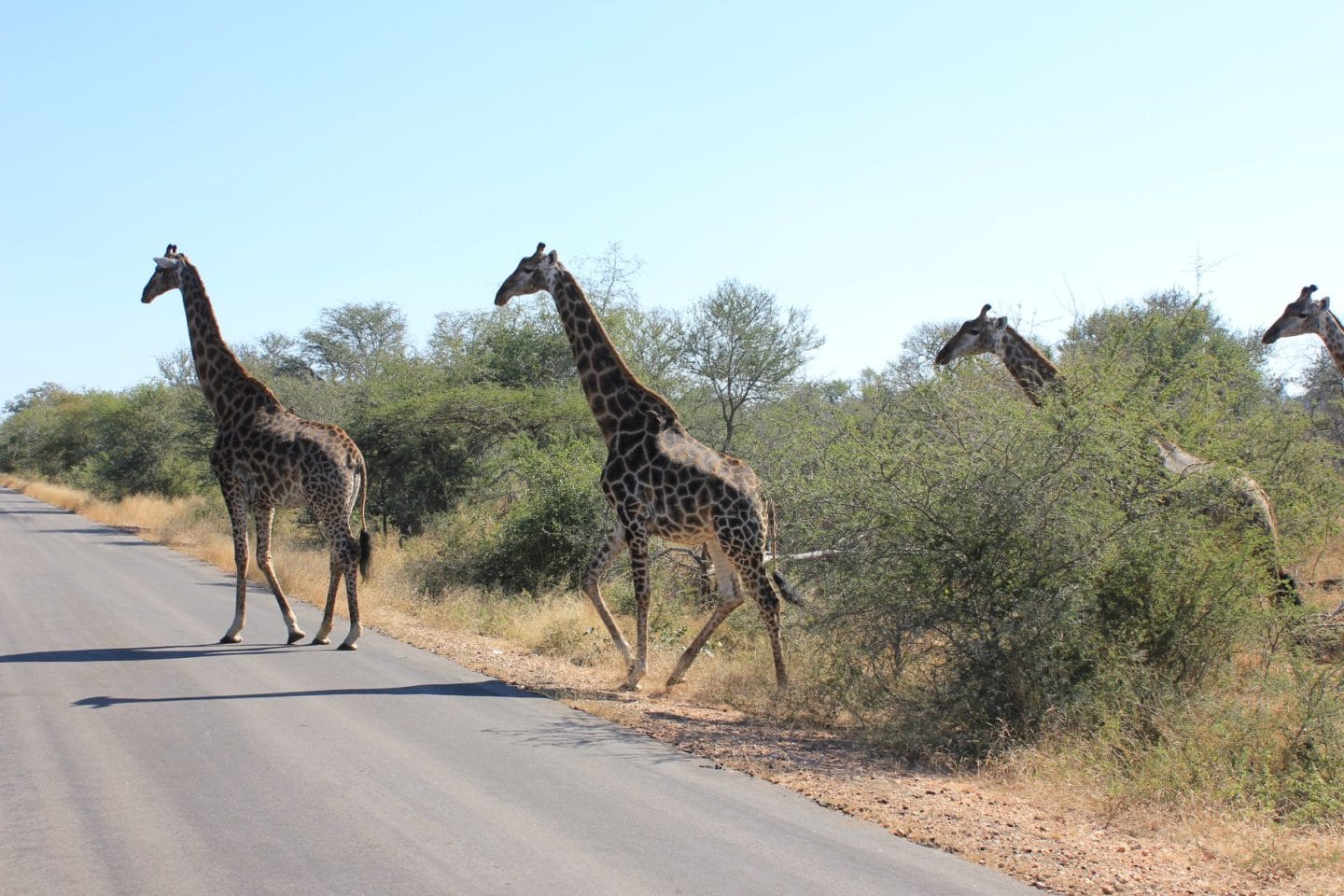
Kruger’s extensive biodiversity is preserved within diverse ecosystems, from bushveld to forests. The park’s network of roads allows for excellent game viewing opportunities, making it a prime destination for wildlife enthusiasts. Tourists are drawn to its accessible location, with options ranging from camping sites to luxury lodges that cater to every taste and budget.
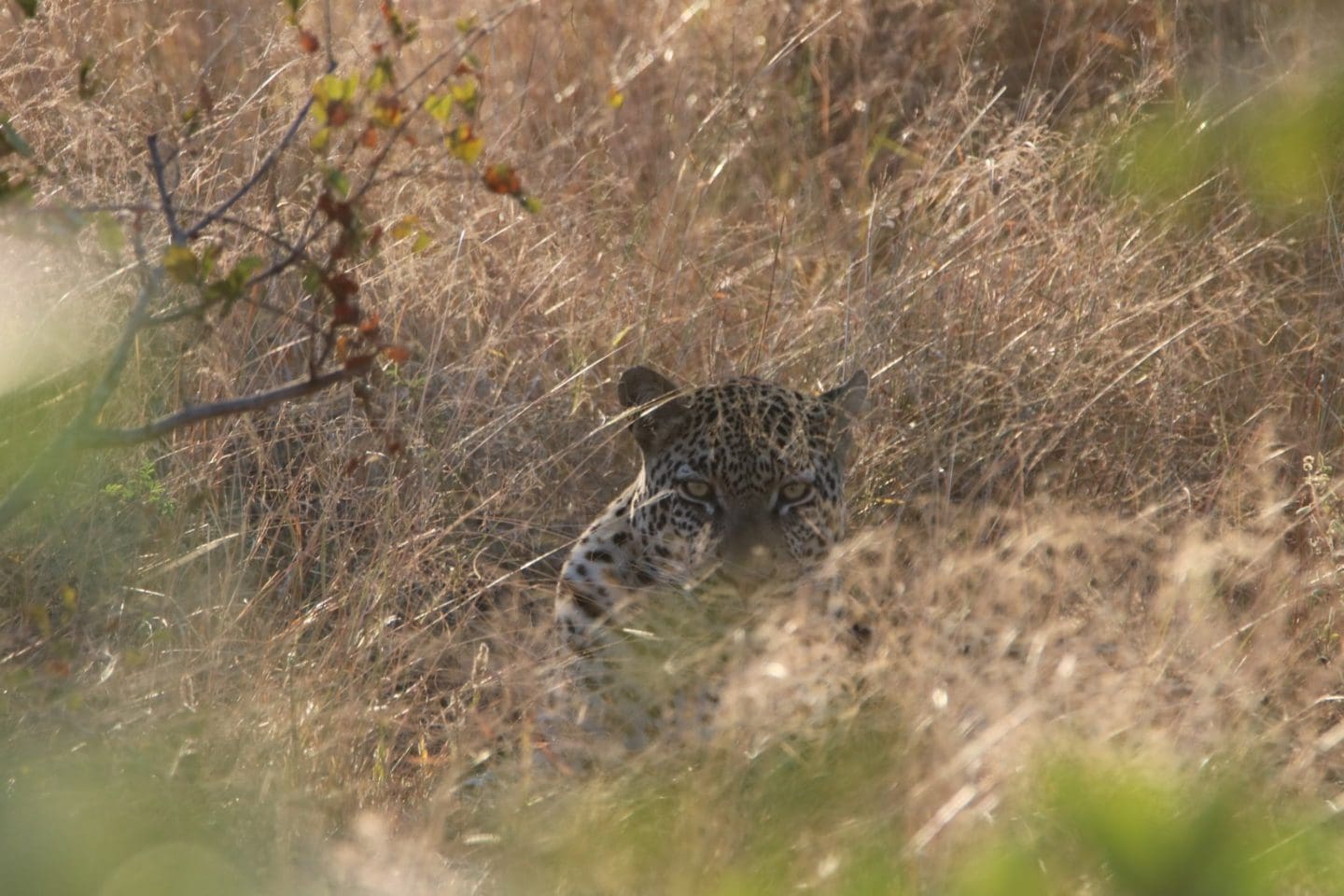
What Makes Kruger Special
Kruger National Park captivates you with its wildlife spectacles, including the iconic Big Five: lions, leopards, rhinoceroses, elephants, and buffalo. But wildlife sightings aren’t limited to that. Expect to see antelope, giraffe, zebras, baboons, and so much more. Each sighting promises a unique thrill, a moment captured in time amidst the vast savannah.
The park’s diverse ecosystems range from dense forests to open grasslands, ensuring a variety of habitats teeming with life. This biodiversity is safeguarded through celebrated conservation programs aimed at protecting vulnerable species and maintaining natural processes.
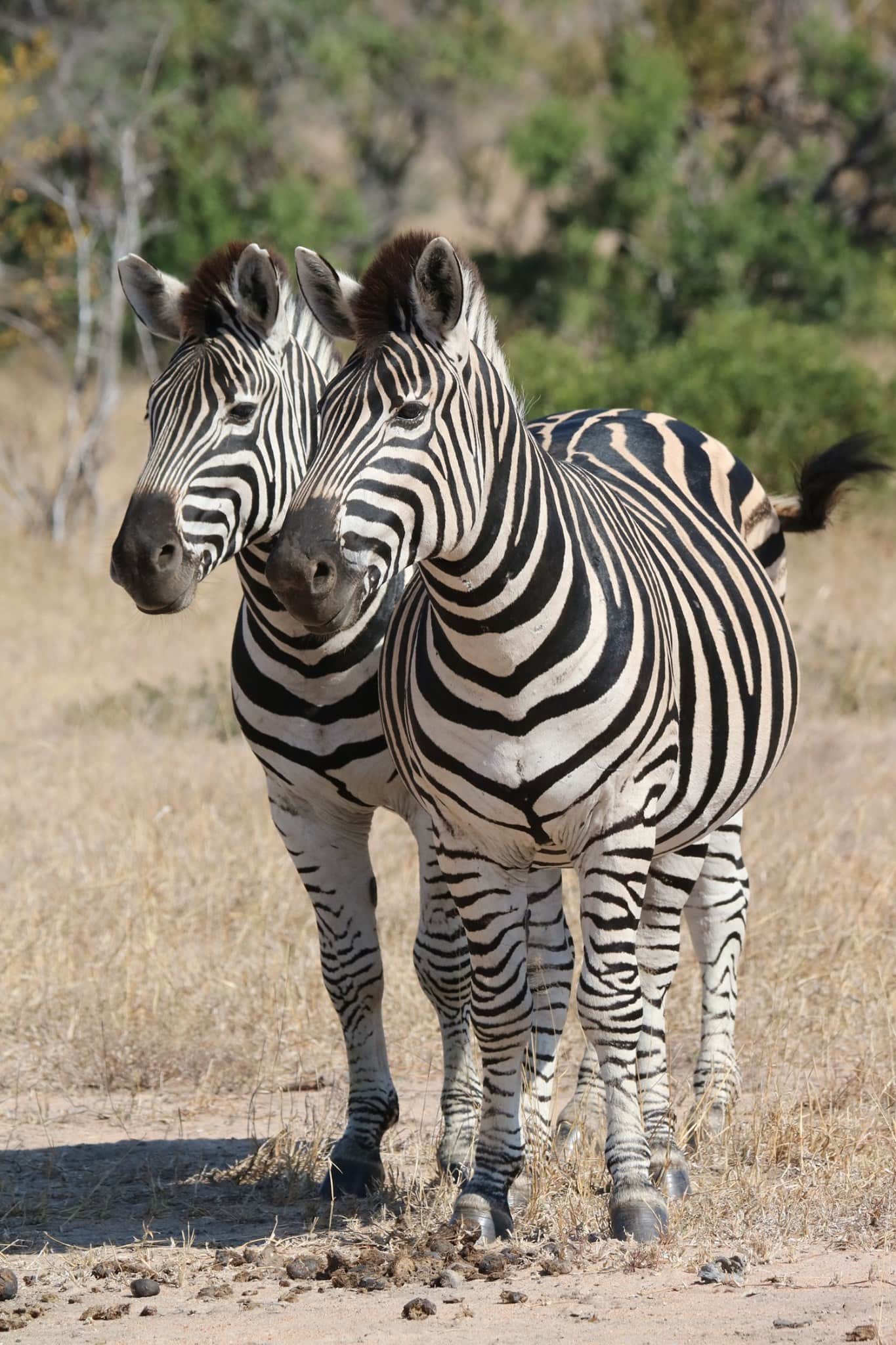
You will find a well-developed infrastructure within the park, designed to enhance your safari experience without sacrificing the wild feel. Multiple rest camps offer comfortable accommodation, catering to a range of preferences.
A myriad of activities are available, with game drives and guided tours giving you up-close encounters with African wildlife. Kruger serves as an outstanding canvas for wildlife photographers and a treasure trove for birdwatchers. Here, every turn on a bushveld track or river loop road might unfold into a story you’ll recount for years to come.
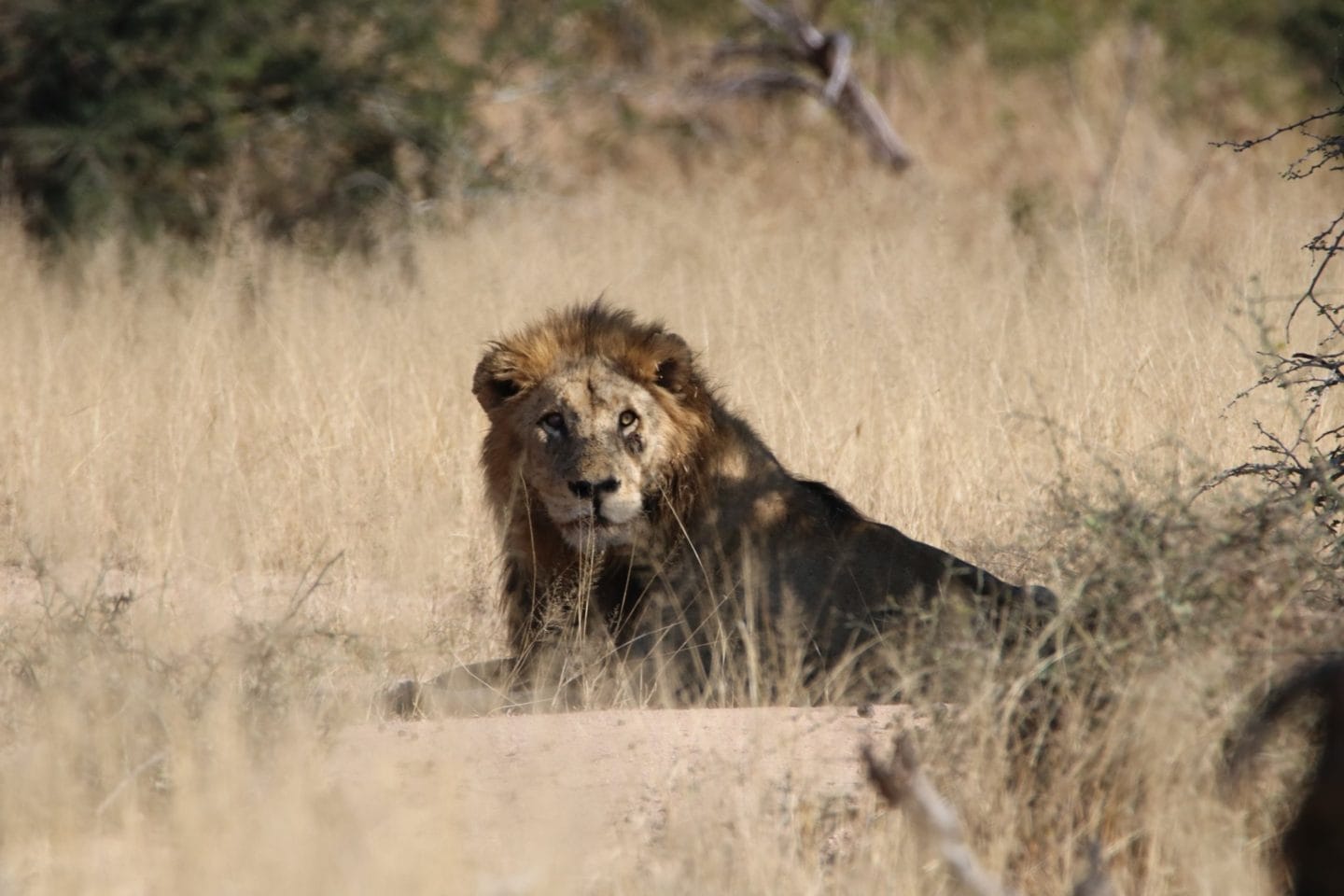
Chobe National Park Overview
Chobe National Park sits in the northern corner of Botswana, famed for its distinct safari experiences and breathtaking riverfront scenery. Covering 11,700 square kilometres, Chobe National Park boasts one of the densest populations of elephants on the African continent.
Throughout Chobe’s expansive boundaries, you witness these gentle giants in their natural habitat. The park’s rich ecosystems range from arid plains to swamplands, each offering unique wildlife viewing opportunities.
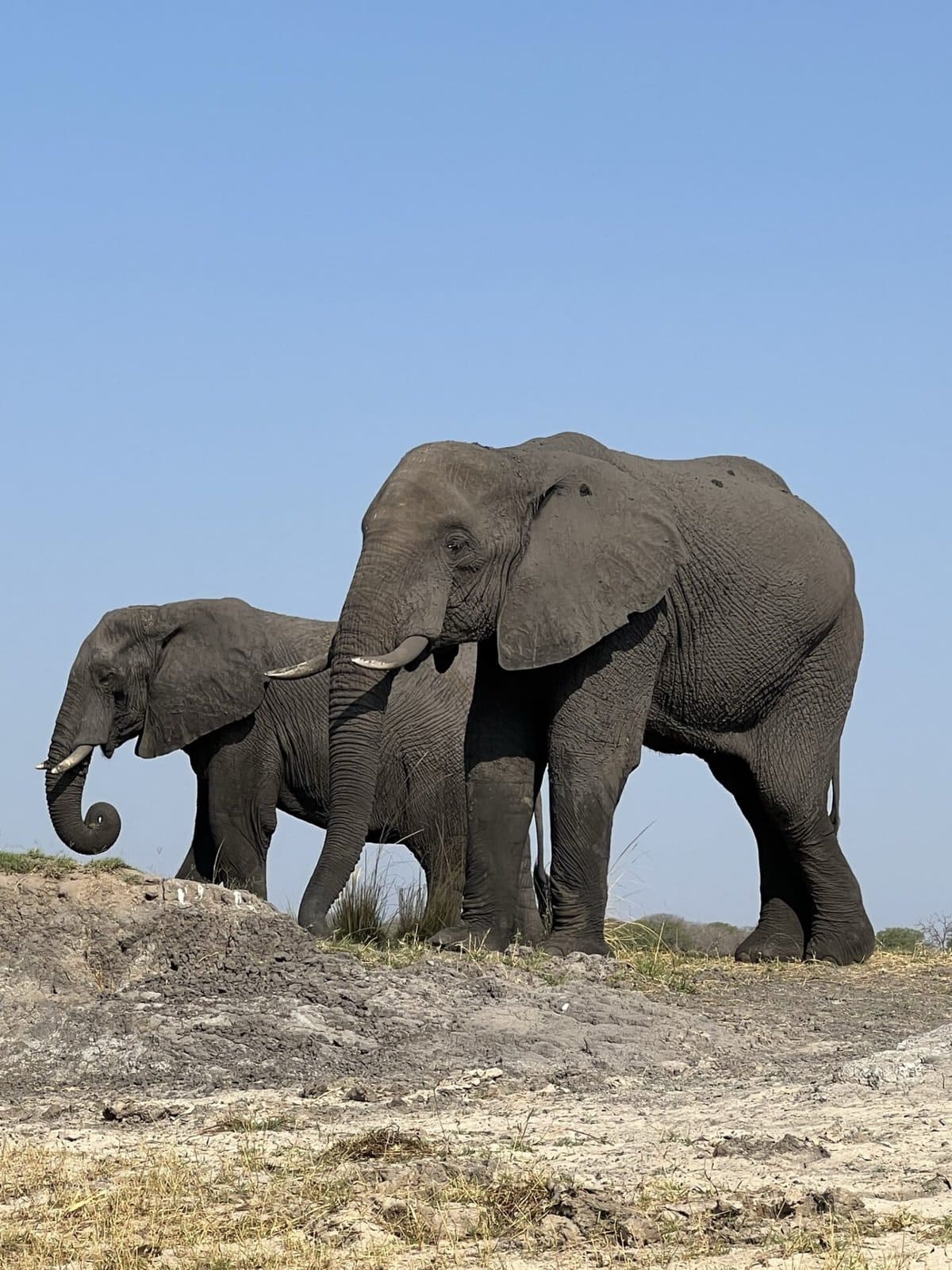
The Chobe River forms the northern boundary and is a hub for game viewing, especially during the dry season when animals congregate along the riverbanks.
Here, the park’s lifeblood allows for exceptional river-based game drives, a feature that sets Chobe apart. From lions to leopards, giraffe, zebra, hippos and crocodiles, you’re immersed in a realm where biodiversity thrives.
Each turn presents a new wonder, squarely positioning this park as a premier safari destination.
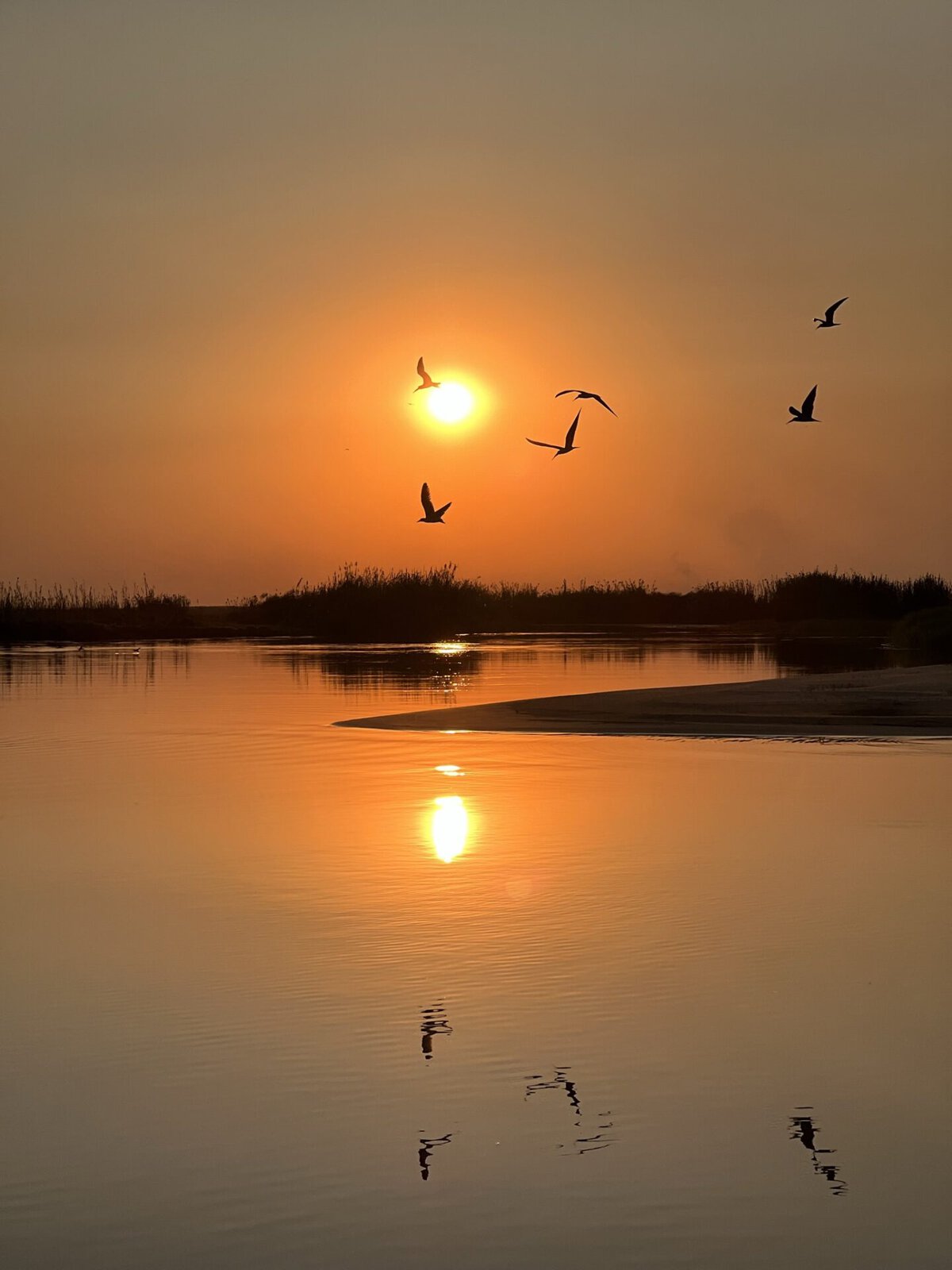
Chobe’s Unique Charm
Chobe National Park, with its magnificent Chobe River, carves out a distinctive niche in the African safari circuit. You witness nature’s drama unfold from a different vantage point as you glide along the river, observing elephants bathe in the late afternoon sun and hippos emerge to grace the waterscape.
Unlike the land-locked expeditions often found elsewhere, Chobe’s water safaris offer an intimate spectacle of wildlife drawn to the life-giving force of the river. This unique charm continues with seasonal migrations, where herds move in rhythmic unison, painting a dynamic canvas of life in motion.
Birdwatchers find heaven here, with the park’s diverse aviary population thriving around the aquatic environment. Each visit to Chobe feels bespoke, as water levels and wildlife interactions shift with the seasons, ensuring no two safaris are ever the same.
This haven in Botswana not only distinguishes itself by its enviable elephant populace but through the interplay of river and land that defines the Chobe experience.
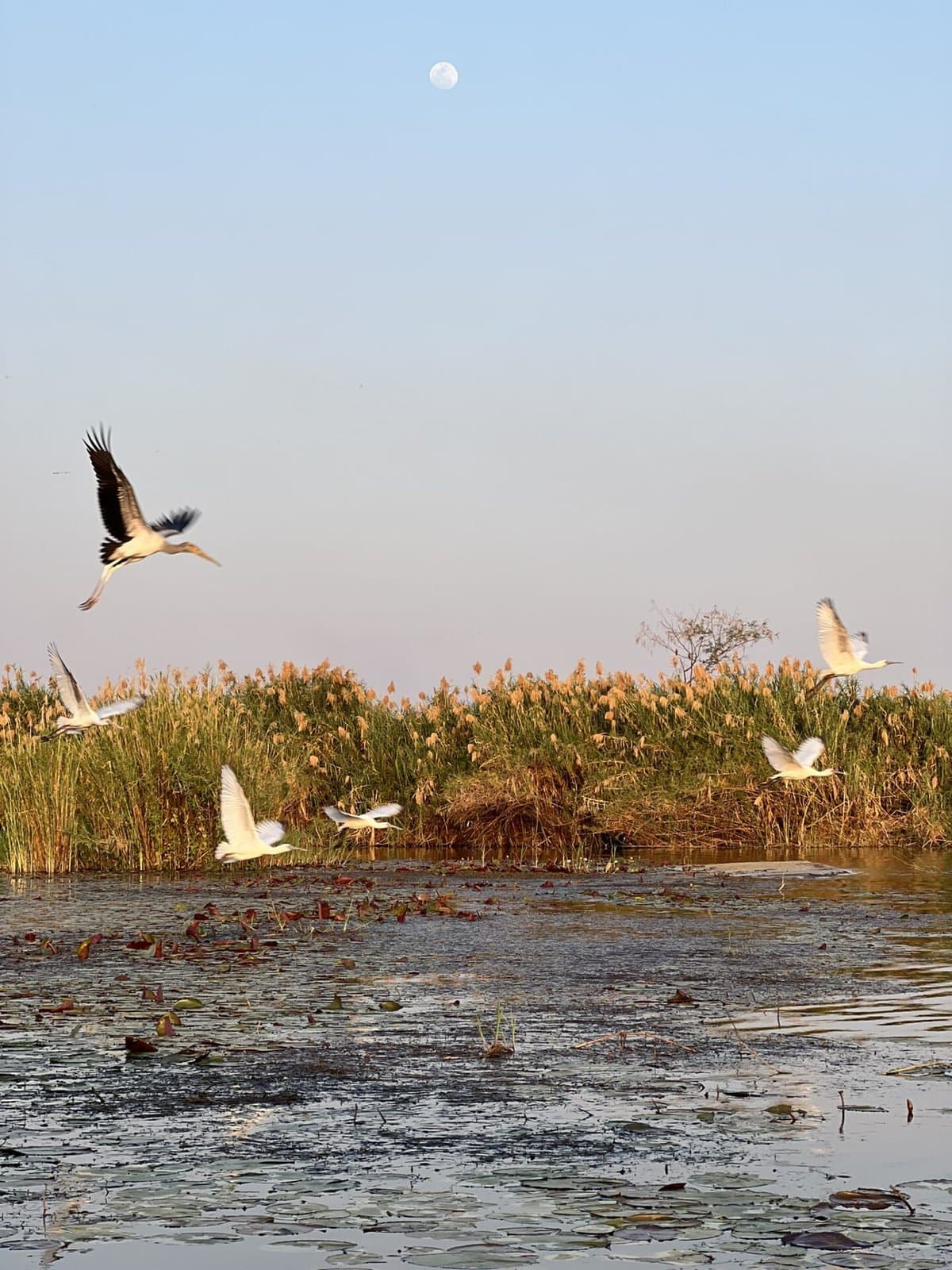
Comparing the Safari Experiences: Kruger vs. Chobe
Kruger National Park offers a wide range of accommodations, from budget campsites to luxury lodges. You can find yourself listening to lion roars at night, surrounded by the bush.
In contrast, Chobe’s accommodations, while also varied, often boast riverside views where the splash of an elephant taking a bath could be your morning alarm. We stayed at Ichingo Chobe River Lodge on the Namibian side of the Chobe River and loved every moment of it.
Kruger’s lodges sprinkle across vast landscapes, providing seclusion and an array of safari drives, bush walks, and cultural experiences.
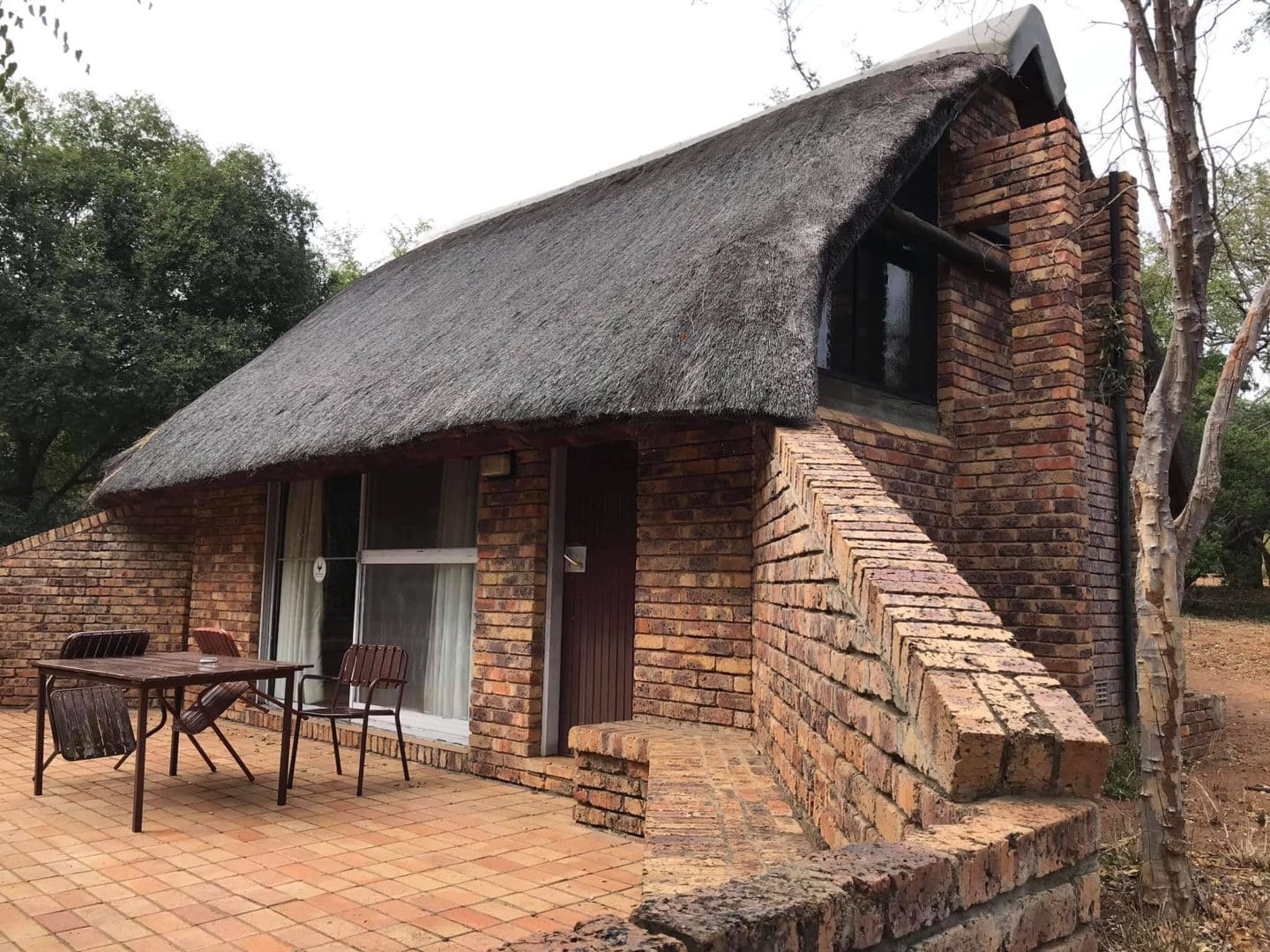
In Chobe, the wildlife encounters are heavily influenced by the proximity to water, especially the majestic Chobe River. A river cruise here gives you the chance to see hippos, crocodiles, and a variety of birds from a fresh vantage point. Kruger, on the other hand, features the Big Five with frequent leopard sightings and offers larger territory for game drives.
The experience in both parks changes with the seasons.
Chobe’s dry season brings scores of elephants by the river, creating unparalleled photographic opportunities.
Kruger’s dry winters make for excellent game viewing as animals congregate around scarce water sources.
Regardless, you should prepare for the wet season’s lush landscapes, which can make wildlife more elusive but offer vibrant birdlife and new-born animals.
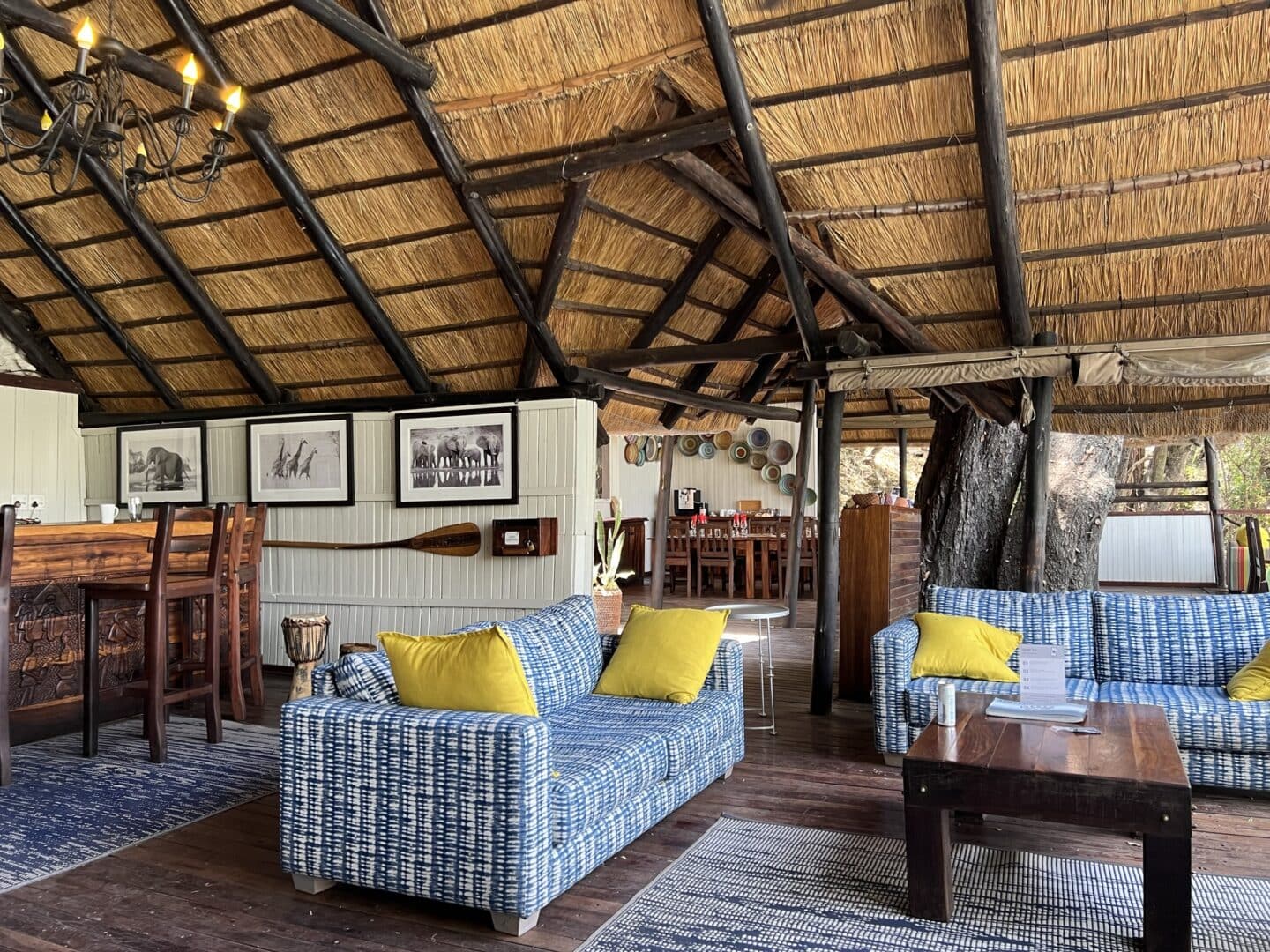
1. Wildlife Sightings
Kruger:The vast expanse of Kruger allows for a high density and diversity of wildlife. However, the sheer size of the park means that spotting animals may require more time and patience.
Chobe: The Chobe Riverfront’s concentrated wildlife populations make animal sightings, particularly elephants, almost guaranteed, providing an excellent experience for those with limited time.
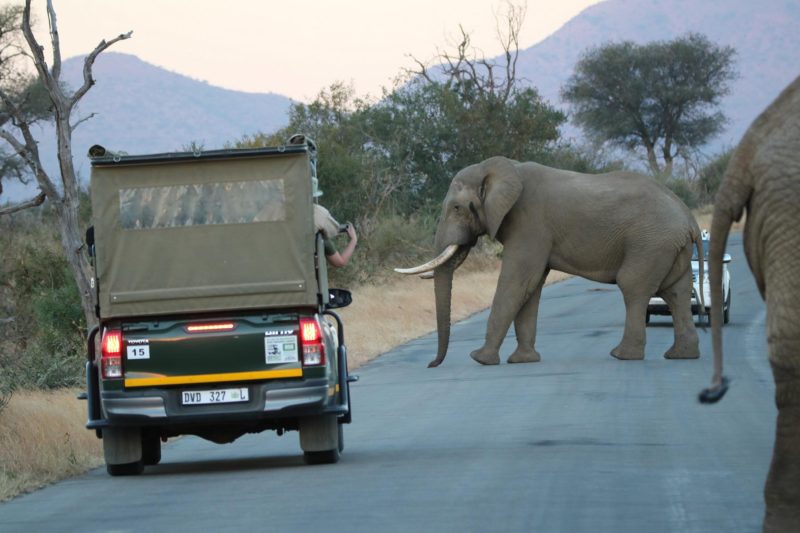
2. Landscape
Kruger: Diverse landscapes, from open savannahs to dense woodlands, offer a varied backdrop for wildlife photography and exploration.
Chobe: The Chobe Riverfront’s scenic beauty adds an extra dimension to the safari experience, with river cruises offering a unique perspective on the park’s flora and fauna.
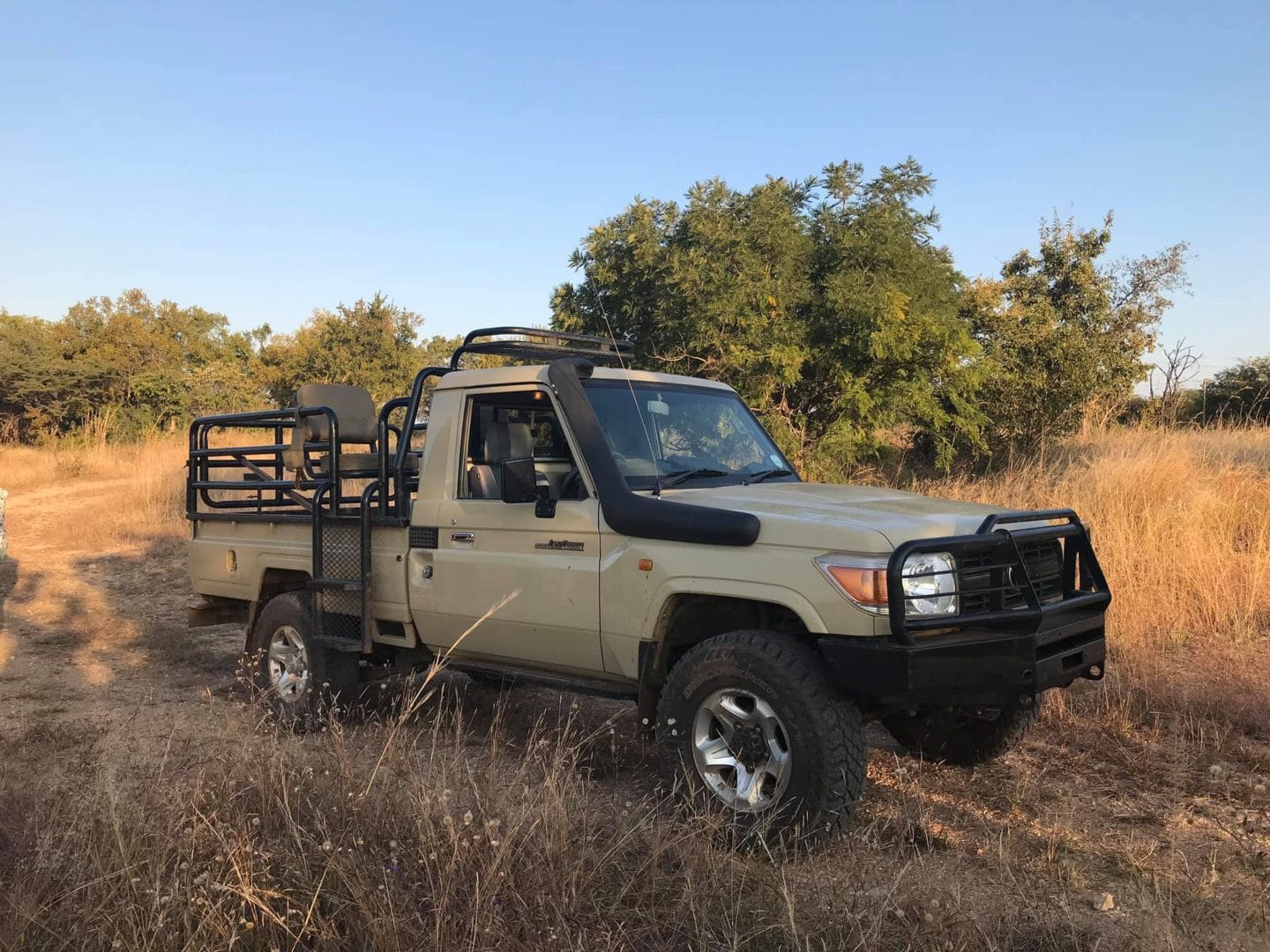
3. Activities
Kruger: Traditional game drives, guided walks, and hot air balloon safaris provide a comprehensive safari experience.
Chobe: Boat safaris along the Chobe River offer a distinctive and tranquil way to observe wildlife, complementing the traditional game drives.
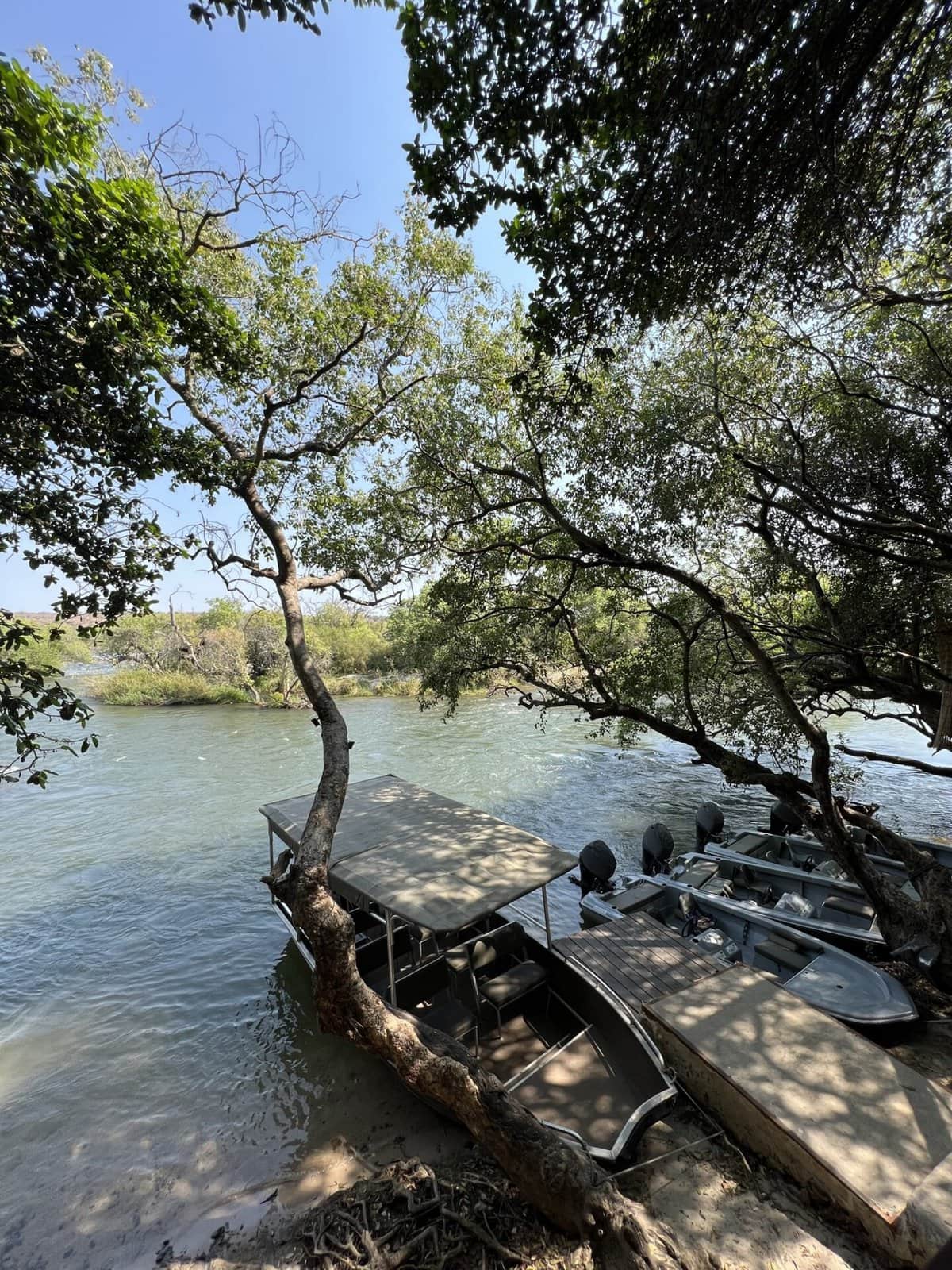
Practical Considerations
Deciding between Kruger and Chobe hinges on a few factors.
Budget considerations: Chobe might edge out with typically higher park fees and safari costs than Kruger. Contemplate your available funds when making a choice.
Length of stay: Allocate enough days to fully immerse yourself in the park’s experiences — Kruger may require a longer stay due to its size, whereas Chobe may require a longer stay due to its remoteness.
Personal interests: Your preference for either land or water-based activities should guide your selection, with Chobe offering unique river safaris.
Regarding the best time to visit, dry seasons are optimal for wildlife viewing – May to September for Kruger and June to October for Chobe.
Preparations should include booking accommodations in advance, getting relevant vaccinations, and packing suitable clothing for temperature variations. Familiarize yourself with each park’s rules to ensure a smooth experience.
Check out the things I wish I knew before heading on an African Safari!

Ecotourism and Conservation
Ecotourism plays a critical role in the conservation efforts at Kruger and Chobe National Parks. Your visit supports crucial initiatives aimed at protecting the diverse ecosystems that these parks are famous for.
The fees you pay as a guest help fund anti-poaching units, research projects on wildlife health, and community outreach programs that encourage local support for conservation.
By choosing eco-friendly lodges and guided tours that prioritize sustainability, you contribute to minimizing the human impact on these fragile environments.
Both parks strive to balance visitor experiences with the welfare of their natural resources. This delicate balance ensures that generations to come can still marvel at Africa’s majestic wildlife. Your involvement, whether through respectful wildlife viewing or supporting conservation-minded businesses, makes a direct impact on preserving the parks’ biodiversity.
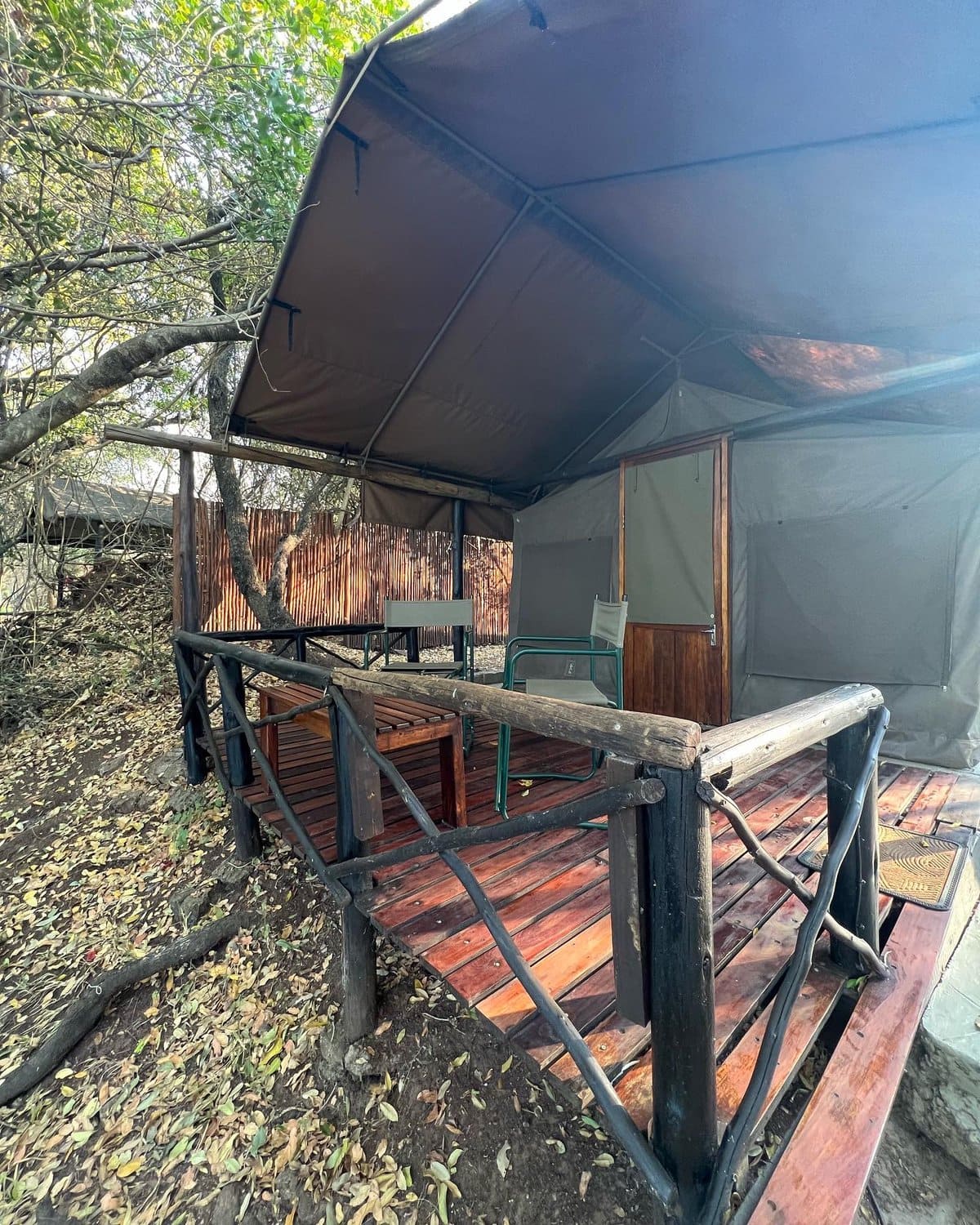
Embracing the Call of the Wild
You’ve heard the call of the wild, and now, imagine stepping into a world where every turn brings a new discovery. Your safari adventure is more than a simple holiday; it is a chance to witness the untamed beauty of Africa.
As you ponder between the vast savannas of Kruger and the dense forests of Chobe, remember that each park offers an opportunity to create lifelong memories.
Embrace the thrill of the bush, the quiet wait for the perfect wildlife shot, and the peaceful sunsets that paint the horizon. Your choices support conservation efforts and the local communities, making your trip a meaningful journey.
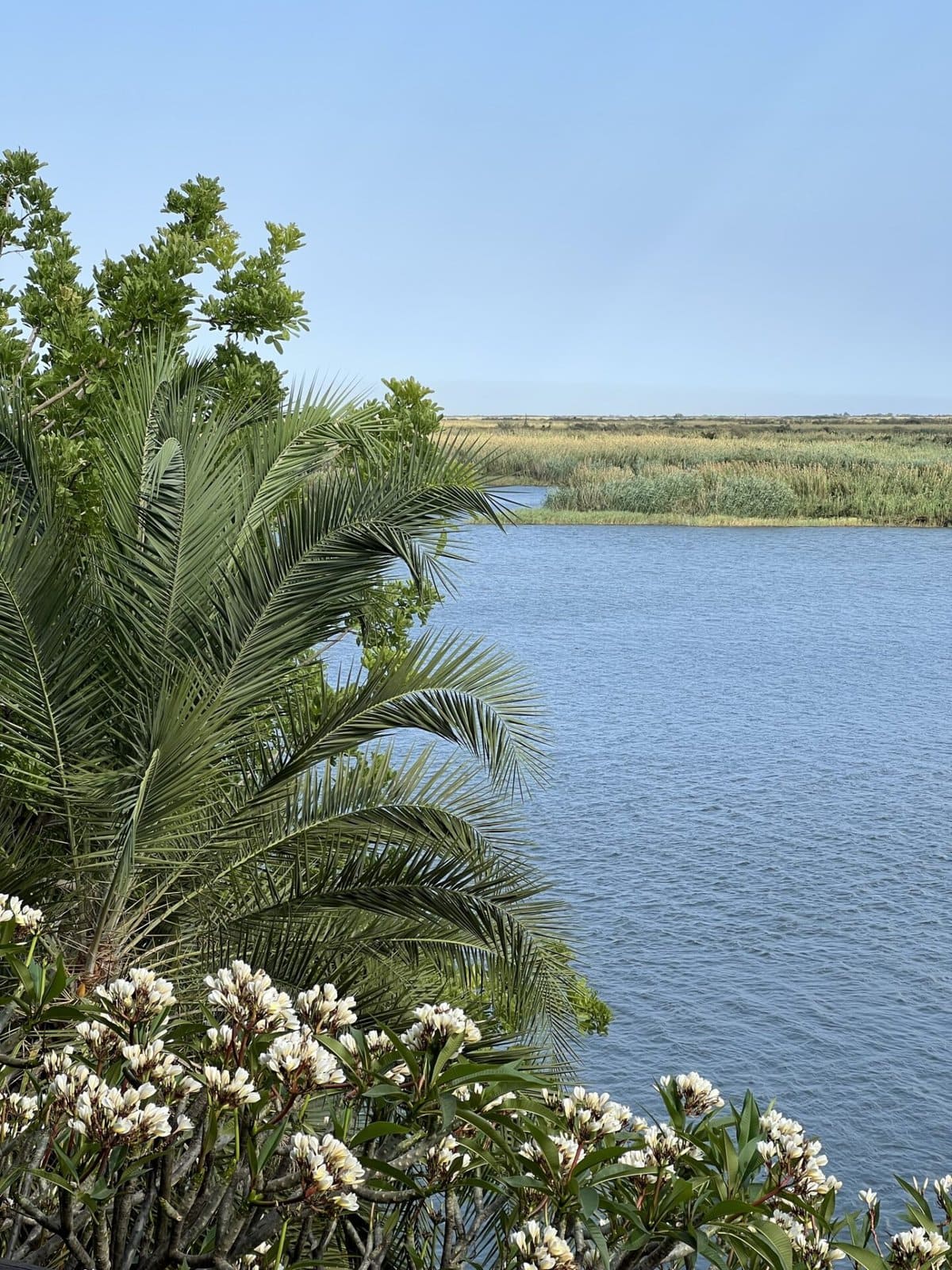
Choosing between Kruger National Park and Chobe National Park ultimately depends on your preferences and priorities.
Kruger’s vastness and diverse landscapes provide a classic safari experience, while Chobe’s riverfront setting offers a unique and intimate encounter with wildlife. Whether you seek the thrill of tracking the Big Five or the tranquility of drifting along a river filled with elephants, both Kruger and Chobe promise unforgettable moments in the heart of Africa’s untamed wilderness.
Just know that you are part of a story much grander than your own. Now, venture out and let the adventure envelop you, forging a connection with the wild that will last forever.
Related Posts
- What to Know about Kgalagadi Transfrontier Park (+ Helpful Travel Tips)
- 14 Must-Pack Items to Bring on Safari
- Where to Find the Best Views in Cape Town
- Cresta Mowana Safari Resort and Spa Review, Botswana
- City Lodge Hotel a OR Tambo Airport Johannesburg Review
